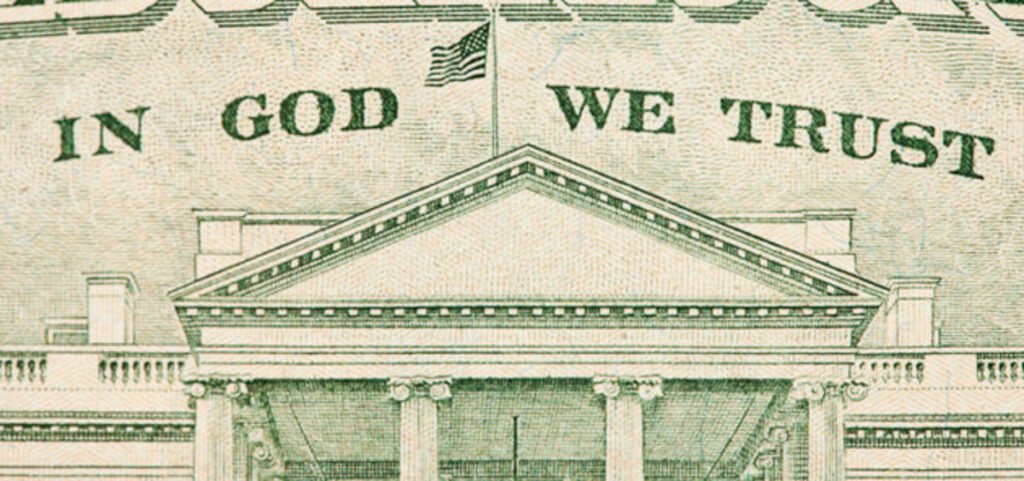“In God We Trust” – these four simple words have become deeply ingrained in American culture, appearing on currency, government buildings, and even in some state mottos. But where did this phrase come from, and how did it become so central to American identity?
The origins of “In God We Trust” as a national motto can be traced back to the tumultuous period of the American Civil War. In 1861, Reverend Mark R. Watkinson of Pennsylvania wrote a letter to Secretary of the Treasury Salmon P. Chase, suggesting that recognition of the Almighty God be placed on U.S. coins. Watkinson argued this would “relieve us from the ignominy of heathenism” and declare that God was on the Union’s side in the conflict.
Chase, moved by the idea, instructed James Pollock, the Director of the Mint, to prepare a motto. After considering “God, Our Trust” and “God and Our Country,” they settled on “In God We Trust.” The phrase first appeared on some two-cent coins in 1864, and its use gradually expanded to other denominations over the following decades.
The man most responsible for propelling “In God We Trust” into widespread use was Representative Charles Edward Bennett of Florida. In 1955, during the height of the Cold War, Bennett introduced a bill to require the phrase on all U.S. currency. His timing was crucial – amid fears of “godless communism,” the idea of officially recognizing divine providence resonated strongly with many Americans.
Bennett’s bill passed with overwhelming support, and President Dwight D. Eisenhower signed it into law in 1956. The following year, “In God We Trust” began appearing on paper currency. In 1956, it was also adopted as the official motto of the United States, replacing the de facto motto “E Pluribus Unum” (Out of Many, One).
The phrase “In God We Trust” carries deep meaning for many Americans, though its significance varies widely depending on individual beliefs and perspectives.
Others view the motto as a unifying statement, transcending specific religious doctrines to express a shared belief in a higher power and moral authority. In this interpretation, “God” becomes a symbol of ultimate goodness, justice, and truth – ideals that all Americans, regardless of their personal faith, can aspire to uphold.[perfectpullquote align=”right” bordertop=”false” cite=”” link=”” color=”” class=”” size=””]The motto is a reminder that ultimate authority or moral truth doesn’t reside solely with humans or human institutions. [/perfectpullquote]
Even for some atheists and non-religious individuals, the concept of a “higher power” implied by the motto can hold philosophical significance. It can be seen as a reminder that ultimate authority or moral truth doesn’t reside solely with humans or human institutions. This interpretation suggests that no person or government has absolute power over others’ fundamental freedoms or rights. In essence, it implies that there are limits to human authority and that certain rights are inalienable – not granted by governments, but inherent to human existence.
This perspective can serve as a check against totalitarianism or the abuse of power, suggesting that even the highest human authorities are subject to some greater principle, be it understood as universal moral laws, the inexorable march of history, or simply the complex workings of the natural world.
However, the motto has also been a source of controversy. Critics argue that it violates the separation of church and state, favoring monotheistic religions over others and potentially alienating non-religious Americans. Legal challenges to the use of the phrase have been mounted over the years, but courts have generally upheld its use, considering it more tradition and ceremonial deism than an establishment of religion.
Regardless of one’s personal stance, “In God We Trust” remains a powerful symbol in American culture. It reflects the complex relationship between faith and politics in the United States, a country founded on principles of religious freedom yet deeply influenced by religious thought. The phrase continues to spark debate and reflection, serving as a lens through which Americans examine their values, their history, and their vision for the future.
